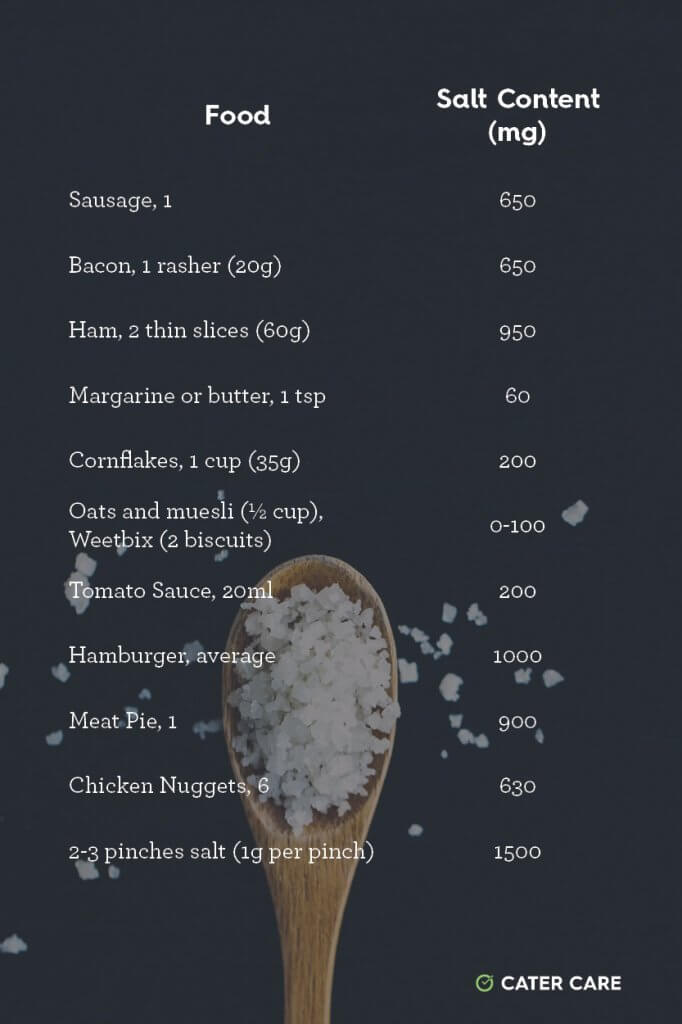Nutrition Australia recommend adults consume a maximum of 2300mg of salt (or sodium) per day, which is equal to one teaspoon. This not only includes what is added to our food at the table, but also what is already in the food. It is estimated that on average, Australians consume 5500mg daily, over double what is recommended. Therefore, careful consideration is required to ensure that your diet does not contain excess salt.
A low salt diet is important for cardiovascular (heart) and kidney health. An excess of salt in the body can lead to an increase in blood pressure, risk of heart disease, kidney disease, stroke, heart attack or heart failure.
As a lot of the foods we eat already contain salt it is not recommended to add salt at the table. In doing this, it can significantly increase our salt intake which can result in increased blood pressure and therefore more stress on the heart and kidneys.

Authors: Nikita Deo (Senior Dietitian) and Rachel Gray (Dietitian)